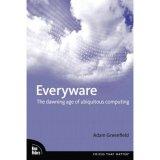Difference between revisions of "The Future of Ubiquitous computing in 2025"
Jump to navigation
Jump to search
| Line 38: | Line 38: | ||
[http://www.microsoft.com/presspass/ofnote/11-02worldin2003.mspx The disappearing computer by Bill Gates] | [http://www.microsoft.com/presspass/ofnote/11-02worldin2003.mspx The disappearing computer by Bill Gates] | ||
[http://www.sciam.com/article.cfm?articleID=CC50D7BF-E7F2-99DF-34DA5FF0B0A22B50&chanID=sa006 A digital Life] | [http://www.sciam.com/article.cfm?articleID=CC50D7BF-E7F2-99DF-34DA5FF0B0A22B50&chanID=sa006 A digital Life]: New systems may allow people to record everything they see and hear--and even things they cannot sense--and to store all these data in a personal digital archive | ||
New systems may allow people to record everything they see and hear--and even things they cannot sense--and to store all these data in a personal digital archive | |||
Revision as of 18:39, 1 March 2007
Team Composition
Constantijn Bakker
Teppo Helles
Petr Hýl
Christos Mileos
Panagiotis (Panos) Vodinas
Introduction
Research
Research Agenda
Analysis of the book 'Everyware' on Ubiquitous Computing
The Driving Forces
- Political
- Economics
- Society
- Technology
- Environment
Scenarios
System Diagram
Interesting Links
International Ubicomputing Conference
Original website from Marc Weiser on Ubicomputing
Related Articles
The disappearing computer by Bill Gates
A digital Life: New systems may allow people to record everything they see and hear--and even things they cannot sense--and to store all these data in a personal digital archive
Videos
minority report becomes reality
Amigo: The intelligent home network
intelligent drawings (for kids)
Books
 The dawning age of Ubiquitous Computing by Adam Greenfield
The dawning age of Ubiquitous Computing by Adam Greenfield
Rating & Comments
<pagerating from="Poor" to="Good" category="Scenario"> Rate this page</pagerating>